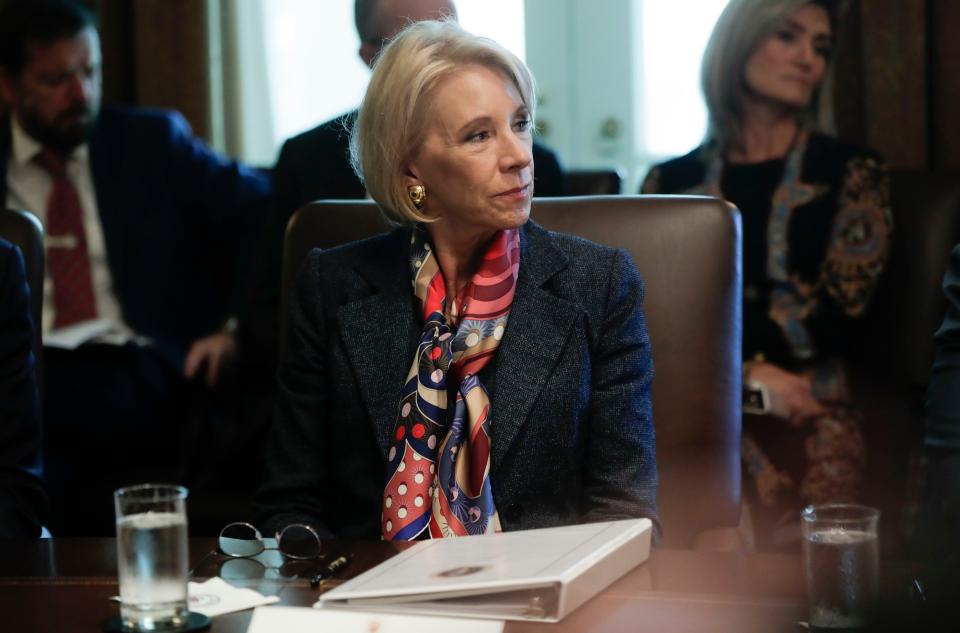House Democrats overturn DeVos on student loan forgiveness, but change unlikely to pass Senate
WASHINGTON – The Democrat-controlled House voted Thursday to overturn regulations introduced by Education Secretary Betsy DeVos that critics said make it more difficult to get student loan forgiveness if a college suddenly closes.
The move to overturn DeVos' rules is unlikely to pass the GOP-controlled Senate. The White House suggested Trump is likely to veto the bill if it does.
So-called borrower defense rules, introduced by former President Barack Obama's administration, were meant to protect students from fraudulent institutions. Some colleges took students' federal loan money but failed to provide them with an education that would lead to employment to pay back their debt, Obama-era regulators said. Without loan forgiveness, students would be on the hook to pay back the money without the benefit of a degree.

DeVos struck down those rules last year. She said they made it too easy for students to seek loan forgiveness. Among her changes: Borrowers must apply for loan forgiveness if their institution closes suddenly. Before the change, students were automatically eligible. DeVos argued the changes would save the federal government $11 billion over the next decade.
The resolution to overturn DeVos' rule change was led by Rep. Susie Lee, D-Nev.. It passed 231-180, with six Republicans supporting the effort. The dissenting votes were all Republican.
🎉PASSED🎉 my resolution to overturn @BetsyDeVosED 2019 Borrower Defense Rule passes the House with bipartisan support!
Thank you to my colleagues. We reminded every American today that education is a national priority.— Rep. Susie Lee (@RepSusieLee) January 16, 2020
Angela Morabito, a spokeswoman for the Education Department, defended DeVos' rules, saying they hold nonprofit and private institutions alike accountable. She said students have a longer window to apply for forgiveness, although the department encourages schools to let students finish their programs.
A White House statement said the effort to return to the Obama-era rules was partisan.
“The previous administration instituted a regulatory regime designed to allow the Federal
Government and State attorneys general to pick winners and losers at considerable cost to taxpayers,” the statement said.
The nation is trying to figure out what to do with a collective $1.6 trillion in student loan debt. Sens. Elizabeth Warren of Massachusetts and Bernie Sanders of Vermont, Democratic presidential hopefuls, both promised some form of student loan forgiveness for the nation’s borrowers.
Their plans are not tied to whether a student’s university operated fraudulently. Warren vowed to push her plan forward not through Congress but by directing the Department of Education to take action to discharge borrower debt.
DeVos has come under fire for the way her department handled the debt of students who attended the now-defunct Corinthian College. A California judge held the department in contempt for requiring loan payments from borrowers after the school closed.
The department's new method of forgiving loans for some students may mean only partial debt relief for many. The methodology relies on comparing affected students' salaries with the pay of those who graduated from similar programs. If their earnings are lower than the median, they are eligible for partial or total loan relief on a sliding scale.
Education coverage at USA TODAY is made possible in part by a grant from the Bill and Melinda Gates Foundation, which does not provide editorial input.
This article originally appeared on USA TODAY: House Democrats overturn Betsy DeVos' rule on student loan forgiveness

